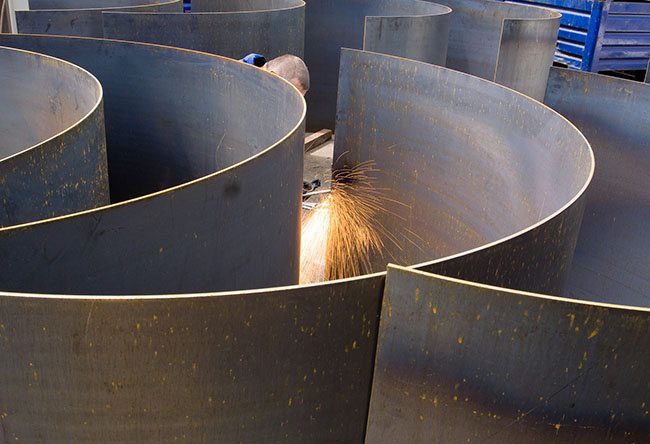Planning Your Custom Fabrication Project: Reduce Cost & Stress
Proper planning is essential to every fabrication project. In a custom project, the planning stage becomes more critical. A standard project will follow a standard plan, with costs, timelines, materials, and even potential setbacks easy to predict and assume. In a custom project, every aspect will require focused attention during the planning process. Before fabrication begins, it’s important to make a complete plan, including timelines, materials, budget, delivery requirements, and special considerations for the end use. Taking the time to work with your fabrication partner during the planning phase will ensure your workflow runs smoothly, and you’ll get the end result you need.

Determining the Basics: Budget, Materials, Timeline, and Delivery
Before the real work can begin, your fabrication partner will need to work with their suppliers for the materials. In today’s market, many materials may be in short supply, or may be available but at a much higher cost than you have budgeted for. If you work together with your fabrication partner to develop the project plan, you may have the opportunity to compare availability and costs. Vetted fabrication shops may work with a variety of trusted suppliers as they build the purchase order for materials needed. The more you involve the fabrication shop in the plan, the greater the possibility that you will be able to get the materials you need for the job. Giving adequate time to the planning process will help you avoid increased costs from last minute rush delivery and higher freight costs. Staying within budget is important, and this is much more likely when you’ve taken the time at the beginning to plan.
During this stage you will also be able to begin mapping out your project timeline, since much of this depends on the availability of materials. You can look at the estimated time for the materials to arrive and base your project scope on that. Rather than having your project stall in the fabrication shop because of a delay in materials, you will know exactly when you will have everything necessary for the shop to begin their process. By building out a complete plan, you and the fabrication shop will be on the same page with the timeline and will be able to build out a project plan that includes dates and deadlines for every milestone.
Custom projects often require custom delivery. Your custom fabrication project may have specific needs when it comes to getting the final product to you. In some cases, the fabrication may need to be assembled at the shop for testing and inspection, then disassembled for shipping and delivery, where in other cases, the final product won’t be assembled until arriving at the final destination. Every custom project is different, and it’s a good idea to have a plan for all the logistics before any fabrication begins. 
Deadlines are Only Stressful if You Aren’t Prepared
If you have collaborated with your fabrication shop during the planning phase of your project, deadlines won’t be nearly as stressful. And even though you have a solid plan, things can still happen that may derail your project slightly. Supply chains can become backlogged, and complications can arise with any fabrication project. With a clear and complete plan for your custom project that includes deadlines for various milestones throughout the fabrication process, you will know whether or not you are on track, and if you aren’t, you will have a clear picture of where the delay is and what you can do about it. Realizing that you need additional support or materials halfway through the project can cause delays or increase overall costs as you struggle to make up time quickly. When you have every milestone laid out from the beginning, including all the materials necessary for those milestones, you will know how to measure the success of the project and can account for any potential challenges along the way.
Avoiding Regulatory Issues
Compliance is key in any fabrication project. Your final build needs to meet all federal and state regulations and guidelines relevant to your industry. In a custom project, this means additional documentation and inspections. The right time to think about this is not when the project is nearing completion, but early in the planning process. When you are building your timeline, you can build in time to have the necessary inspections and testing by not only your fabrication partner, but from any third party inspectors who may need to be brought in to ensure compliance. If you don’t take the time to begin the documentation process and planned inspections early in the process, you could find yourself in a bad place. Going back to address failures or issues with non-compliance can be very costly at the end of your project. This can cause not only major delays, but can damage your relationship with your clients. Your end users trust you to provide them with a final product that is safe, effective, and reliable, and by planning to meet these requirements from the start, your success will be far more likely.
As the old saying goes, if you fail to plan, plan to fail. Mistakes and oversights during the planning process for a custom fabrication project can become expensive fixes down the line. In order to meet your deadline, keep your reputation strong with your customers, and stay within your budget, look for an experienced fabrication shop to develop a thorough plan for your next custom project. To get a free quote today, contact Swanton Welding.

